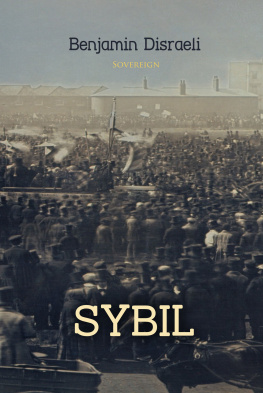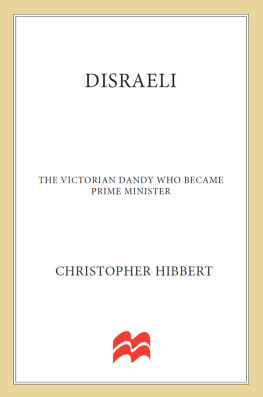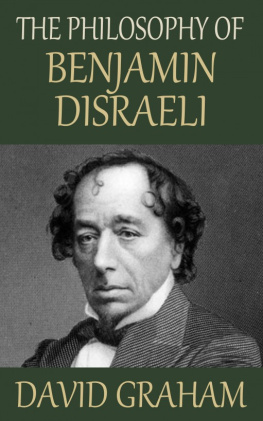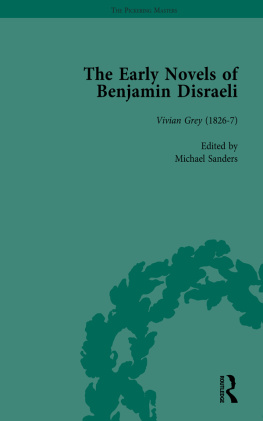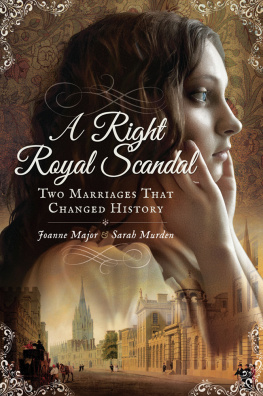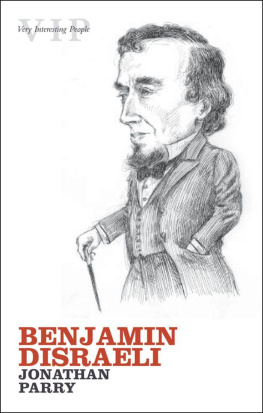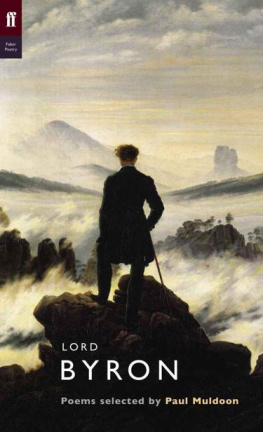
LORD GEORGE BENTINCK
The Library of Conservative Thought
Milton Hindus, Series Editor
Russell Kirk, Founding Series Editor
Americas British Culture, by Russell Kirk
Authority and the Liberal Tradition, by Robert Heineman
A Better Guide than Reason, by M.E. Bradford
Burke Street, by George Scott-Moncrieff
The Case for Conservatism, by Francis Graham Wilson
Cline, by Milton Hindus
Character and Culture, by Irving Babbitt
Collected Letters of John Randolph of Roanoke to John Brockenbrough, 1812-1833, edited by Kenneth Shorey
A Critical Examination of Socialism, by William Hurrell Mallock
Edmund Burke: Appraisals and Applications, edited by Daniel E. Ritchie
Edmund Burke: The Enlightenment and Revolution, by Peter J. Stanlis
The Essential Calhoun, by John C. Calhoun
Foundations of Political Science, by John W. Burgess
Ghosts on the Roof, by Whittaker Chambers
The God of the Machine, by Isabel Paterson
A Historian and His World, A Life of Christopher Dawson 1889-1970, by Christina Scott
Historical Consciousness, by John Lukacs
I Chose Freedom, by Victor A. Kravchenko
I Chose Justice, by Victor A. Kravchenko
Irving Babbitt, Literature, and the Democratic Culture, by Milton Hindus
The Jewish East Side, edited by Milton Hindus
Lord George Bentinck, by Benjamin Disraeli
The Moral Foundations of Civil Society, by Wilhelm Roepke
Natural Law, by Alexander Passerin dEntrves
On Divorce, by Louis de Bonald
Orestes Brownson: Selected Political Essays, edited by Russell Kirk
The Phantom Public, by Walter Lippmann
The Politics of the Center, Juste Milieu in Theory and Practice, France and England, 1815-1848, by Vincent E. Starzinger
Regionalism and Nationalism in the United States, by Donald Davidson Rousseau and Romanticism, by Irving Babbitt
The Social Crisis of Our Time, by Wilhelm Roepke Tensions of Order and Freedom, by Bla Menczer We the People, by Forrest McDonald
Originally published in 1905 by Archibald Constable and Company, Limited.
Published 1998 by Transaction Publishers
Published 2017 by Routledge
2 Park Square, Milton Park, Abingdon, Oxon 0X14 4RN
711 ThirdAvenue, New York, NY 10017
Routledge is an imprint of the Taylor and Francis Group, an informa business
New material this edition copyright 1998 by Taylor & Francis.
All rights reserved. No part of this book may be reprinted or reproduced or utilised in any form or by any electronic, mechanical, or other means, now known or hereafter invented, including photocopying and recording, or in any information storage or retrieval system, without permission in writing from the publishers.
Notice:
Product or corporate names may be trademarks or registered trademarks, and are used only for identification and explanation without intent to infringe.
Library of Congress Catalog Number: 89-34108
Library of Congress Cataloging-in-Publication Data
Disraeli, Benjamin, Earl of Beaconsfield, 18041881.
Lord George Bentinck: a political biography / Benjamin
Disraeli; with a new introduction by Robert W. Kamphuis, Jr.
p. cm. (The library of conservative thought)
Originally published: London: Archibald Constable and Co., 1905.
Bibliography: p.
ISBN 1-56000-947-0 (pbk.: alk. paper)
1. Bentinck, George, Lord, 1802-1848. 2. PoliticiansGreat BritainBiography. 3. Great BritainPolitics and government18371901. I. Kamphuis, Robert W. n. Title. HI. Series.
DA541.B3D57 1997
941.08T092 [B]DC20
89-34108
CIP
ISBN 13: 978-1-56000-947-4 (pbk)
TO
LORD HENRY BENTINCK
IS INSCRIBED
THIS POLITICAL BIOGRAPHY
OF
ONE FOR WHOM HE ENTERTAINED A DEEP AFFECTION
AND WHOSE TALENTS AND VIRTCES
HE SHARES
Lord George Bentinck is an account of high political drama among the best ever written. Lord George Bentinck, Benjamin Disraeli, and Sir Robert Peel are the stars, with Peel as the antagonist and Bentinck the subject and Disraeli the author as the protagonist team. Although of perfectly different natures, they pulled together without any difficulty, a contemporary observed. By temperament, skills, background, and resources, they were ideally matched and necessary to one another. Disraeli wrote this biography as a tribute to his colleague, whose untimely death in 1848 left Disraeli alone to lead the Conservative party in the House of Commons.
Lord George Bentinck was well known in his day, even if most history books pass him by. From the 1820s to the mid- 1840s he was a dominant figure in English horse racing, acknowledged by many as king of the turf. In 1845 alone, his horses won 82 races. Victories came about in part thanks to Bentincks close attention to every detail of the diet, care, and training of his horses. As demonstrated in the events of this book, he had a phenomenal capacity for facts and their relations, and he was willing to put in as much effort as necessary to master them. He was a winner because he worked.
He was also known for his relentless integrity. Once, in a storyline worthy of Dick Francis, he became convinced that one of his own jockeys had thrown a race, and he pursued the matter, and the hapless jockey, regardless of cost until the Jockey Club was convinced and disqualified the rider. At a time when racing was a passion of the ruling class, Lord George Bentinck was one of the patricians.
Aside from his renown on the turf, family and fortune were enough to secure his standing in societys highest elite. Bentincks father was the Duke of Portland, and both his grandfather and his uncle had been prime ministers. Bentinck himself was immensely rich. His contemporaries report that more than once he stood to gain or lose 150,000 on a race (he was proud to back his judgment), and in the fashion-conscious age of Beau Brummell, he never wore the same cravat twice. In short, a vehement and imperious spirit, unflinching courage, a mind of great native vigor directed by a will that never knew submission, and the reputation for unbending rectitude that wins the confidence of men.
Lord George was also a long-standing member of the House of Commons. Though a member of Parliament for 18 years prior to the start of the events in this book, he spoke only infrequently in debates. During his first eight years he said nothing at all. Viewing himself as nothing but a good judge of men and horses, he admitted that he had little attraction to politics, and was known to put in appearances at Westminster in a topcoat pulled over hunting regalia.
Disraelis biography brings to life matters bigger than Bentincks personality: enduring issues and principles by which to govern and to live. We really meet Bentinck only in flashes. Yet since his pride did not demand sycophancy, he would have applauded Disraelis treatment. It took extreme provocationbeing sold was Bentincks termat the hands of his partys leader, Sir Robert Peel, to move him off the back bench and track, into the forefront of national controversy and leadership. In 1845 he had clout, ability, indignation, and a determination to do something about it. What he and like-minded men needed was (and is) rare: an imagination powerful enough in depth and breadth to bring the full range of their convictions into focus and devise an effective program of action.




